
Verbi in Are Ere Ire
Verbs with infinitives ending in -ere are called second conjugation, or -ere, verbs. The present tense of a regular -ere verb is formed by dropping the infinitive ending -ere and adding the appropriate endings to the resulting stem. There is a different ending for each person. Characteristics of the Second Conjugation

Verbi are, ere, ire (without verbs in ire that require isc) Diagram Quizlet
School subject: Italiano per stranieri (1061829) Main content: Verbi regolari in -ARE -ERE -IRE (1068516)
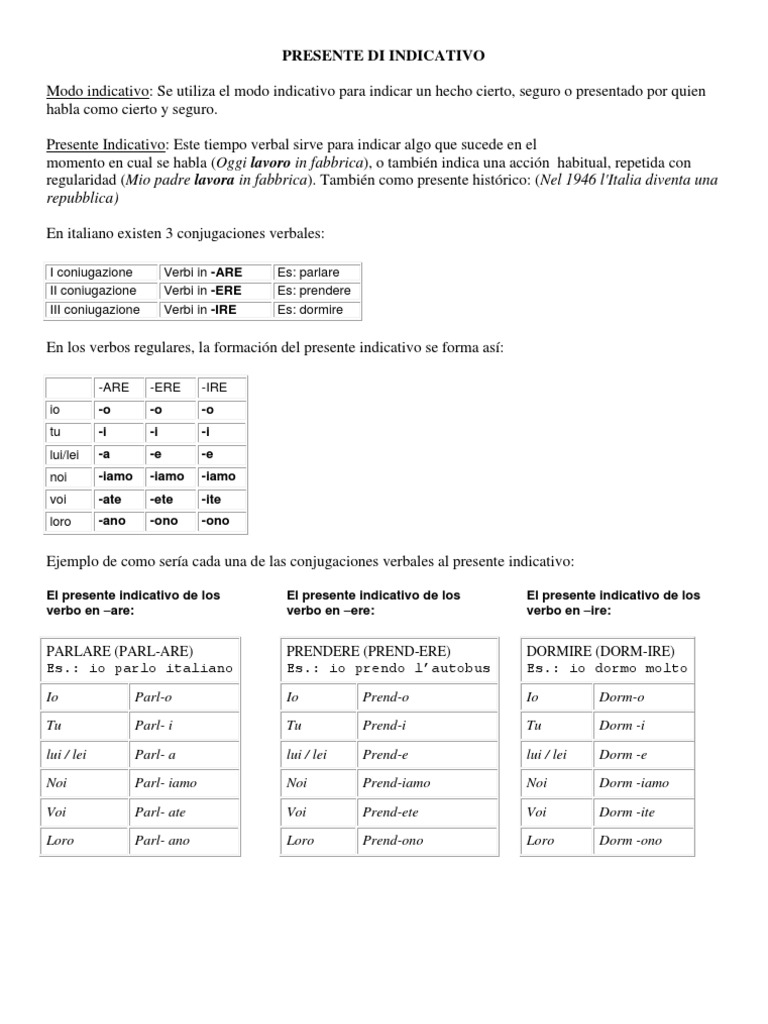
CONIUGAZIONE VERBI ARE ERE IRE EBOOK
Italian verbs that end in - ire are divided into two groups, both considered regular. The first group* is smaller and has similar endings to regular - ere verbs. To conjugate these verbs, remove the infinitive ending and then add one of the following verb endings:
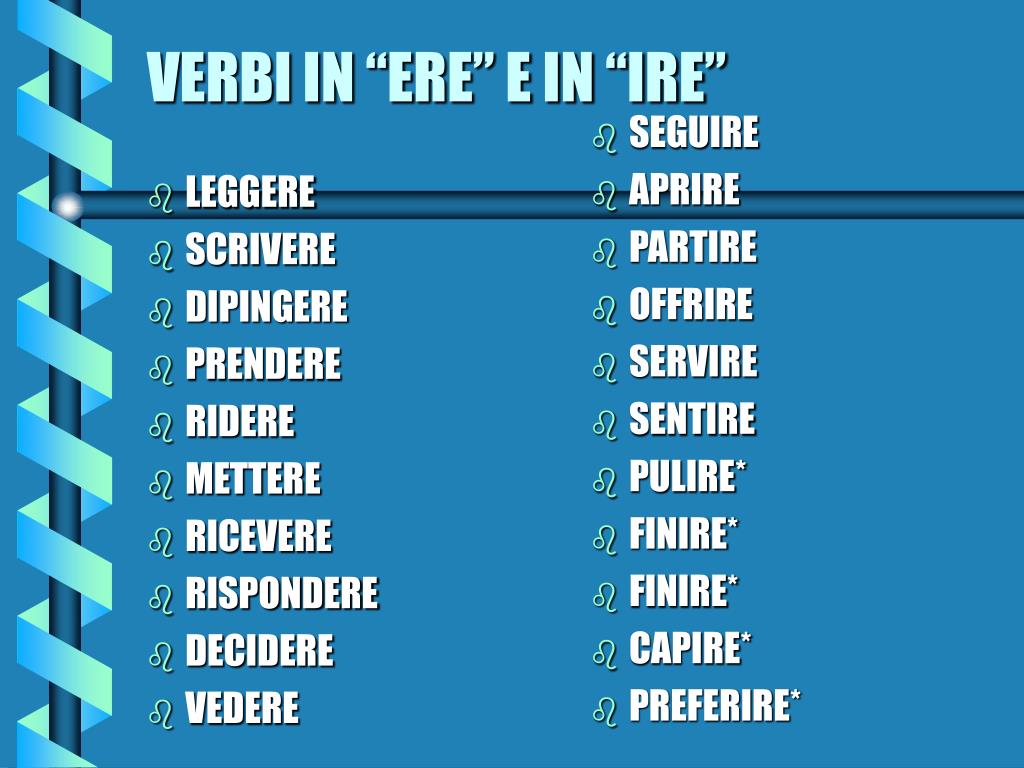
PPT I Verbi in ERE PowerPoint Presentation, free download ID307746
Regular verbs in -ere and -ire The present tense of regular verbs in - ere is formed by dropping the infinitive ending (- ere ) and adding the appropriate endings to the resulting root (- o, - i, - e, - iamo, - ete, - ono ). For example, to form the present tense of leggere you first must drop - ere.
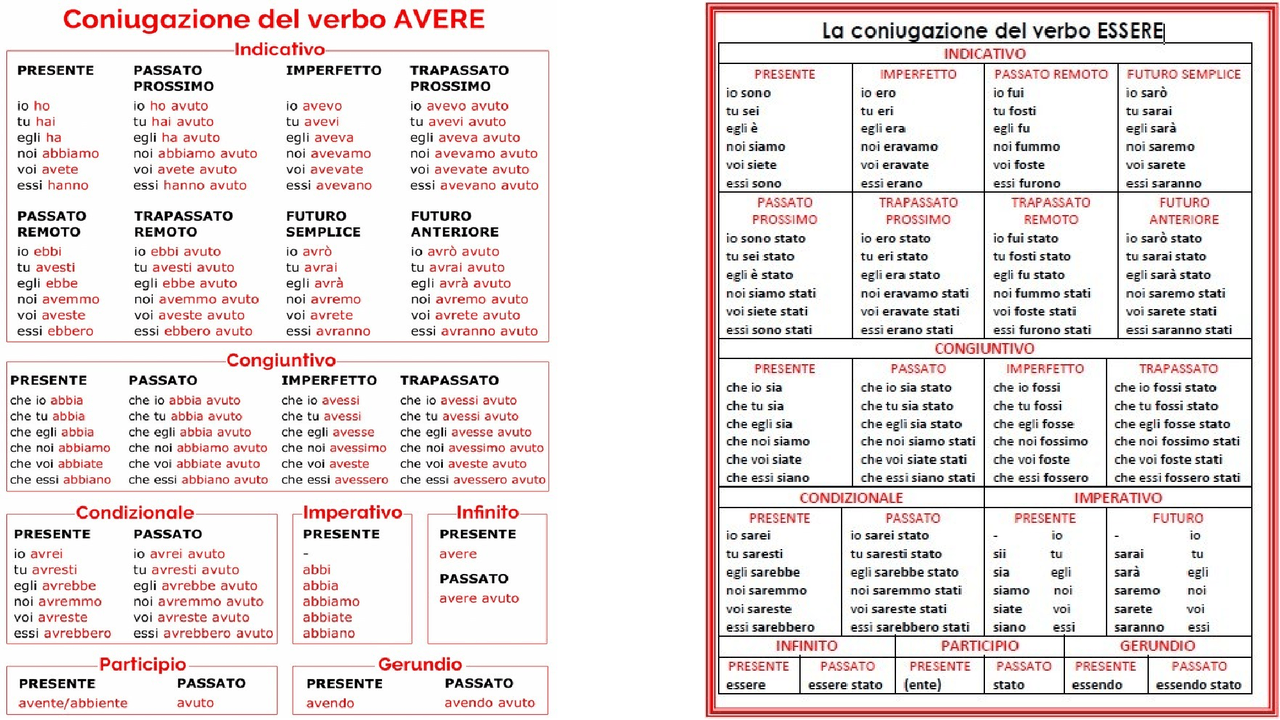
Coniugazioni dei tempi verbali per i verbi regolari italiani in ARE, ERE, IRE e ISCO. Docsity
1. Bere English meaning: to drink Note: Bere is an irregular -ere verb, so it doesn't follow the same conjugation pattern as other -ere verbs in the present tense. It derives from the Latin verb bevere, so we need to remove the ending from this original verb and add our endings. (io) bevo = I drink (tu) bevi = you drink (informal)

Tabella dei verbi avere essere e verbi are ere ire Docsity
There are three groups of verbs in Italian: Verbs ending in -are. Verbs ending in -ere. Verbs ending in -ire. ordinare [ to order] prendere [ to have; to take] aprire [ to open] Ordinare, prendere and aprire are in the infinitive form. The infinitive is the base form of the verb, the form that you would find in the dictionary (analogous to.

Italian grammar imperfetto indicativo are; ere; ire Learning italian, Italian language
There are two types of IRE verbs. Most IRE verbs undergo an alteration in the singular and third person plural forms, whereby the letter combination -isc- is added between the verb's stem and the inflected ending. EXAMPLE: finire end ⇒ io fin-isc-o

Pag 21 Verbi regolari coniugazione ERE Gramatica italiana, Gramática
Introduzione Italian -ere verbs (also called 2nd conjugation) are the second most common verb group. Generally they conjugate fairly regularly. Vocabulary Vocabolario perdere to waste to lose cadere to fall chiudere to put off, turn off to close, shut ricevere to get to receive More Information More Information

Verbi Con Are Ere Ire beyarules
Most regular Italian verbs that end in - ire require - isc - in four of their conjugations (1st, 2nd, 3rd person singular and 3rd person plural). To conjugate them, remove the infinitive ending and then add one of the following verb endings:
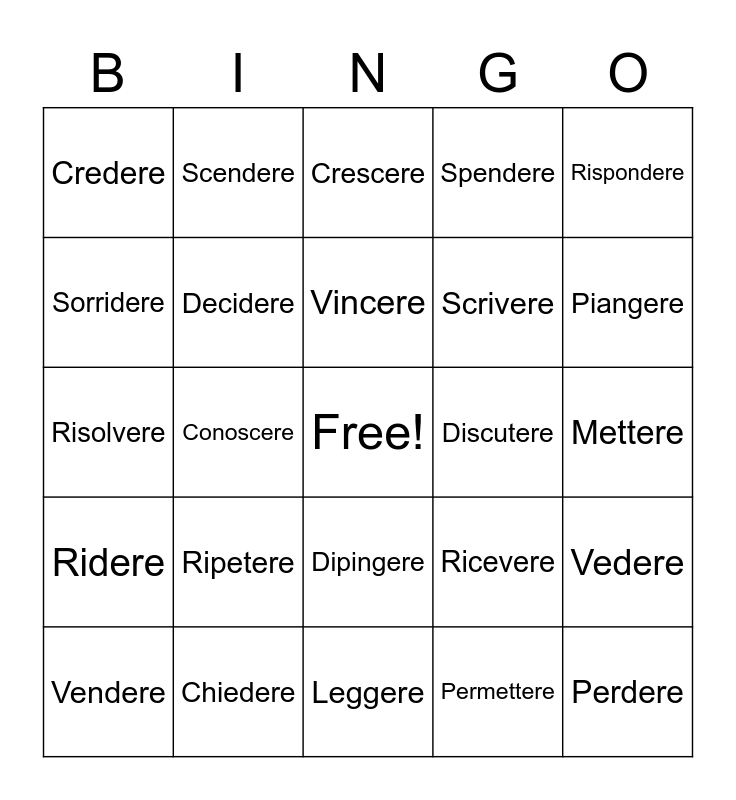
I verbi ERE Bingo Card
I verbi in -ere (Verbs in -ere) Grammar Verbs in ere Watch on Verbs with infinitives ending in -ere are called second conjugation, or -ere, verbs. The present tense of regular Italian verbs in -ere is formed by dropping the infinitive ending (-ere) and adding the appropriate endings to the resulting root (- o, - i, - e, - iamo, - ete, - ono ).

Grammatica Grammatica, Lezioni di grammatica, Regole ortografiche
Some of the most common -ere verbs are chied ere (to ask), chiud ere (to close), legg ere (to read), mett ere (to put), prend ere (to take), rid ere (to laugh), rispond ere (to answer), scriv ere (to write), ved ere (to see), vend ere (to sell) and viv ere (to live). Still facing difficulties with 'The present tense: regular verbs ending in.

CONIUGAZIONE VERBI ARE ERE IRE PDF
Memory. Practice your Italian verb conjugations for the Il presente (-ere verbs) with graded drill activities and fun multi-player games.

VERBI IN ERE Maestra Giulia
Verbs ending in - are, - ere, - ire in the present tense. The present tense indicates activities that you normally do, i.e.: canto in un coro [ I sing in a choir ]. In Italian the present tense also indicates: Activities that are taking place right now, i.e.: mangio un panino [ I'm eating a sandwich ]. Activities that will take place in.

15. Suffissi (sufijos) dei verbi in are ere ire all'imperfetto indicativo Imparare l
We've gone through the first conjugation, which are verbs ending in -ARE, as well as the second conjugation which are verbs ending in -ERE, so it's time for.

Verbi In Are Ere Ire grinderworld
Grammar Irregular in -ere Watch on Irregular verbs are those that do not follow the typical conjugation patterns of their respective types (infinitive stem + endings). Irregular verbs of the second conjugation (verbs ending in -ere) are numerous. Here are some useful ones. bere (to drink): bevo, bevi, beve, beviamo, bevete, bevono Vm bere 00:00 R P
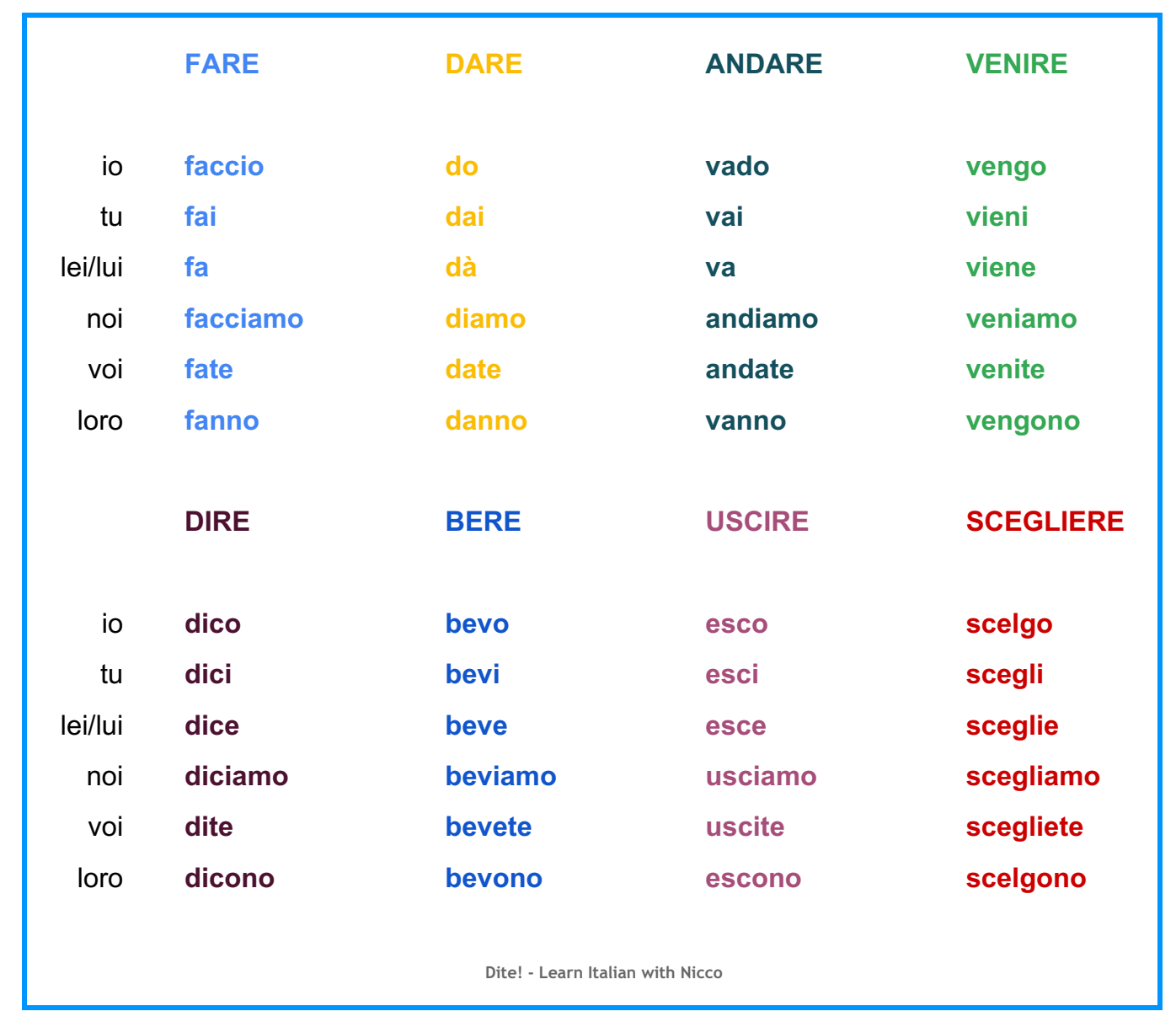
Verbi Irregolari Italian with Nicco Dite!
Learn how to use the extremely important verb: essere (to be) To have (hunger) How to use the verb "avere" (to have) Going shopping (-are verbs) We'll go shopping and explore how to use verbs that end in -are Taking everything (-ere verbs) Discover why the verb prendere-ere Time concepts